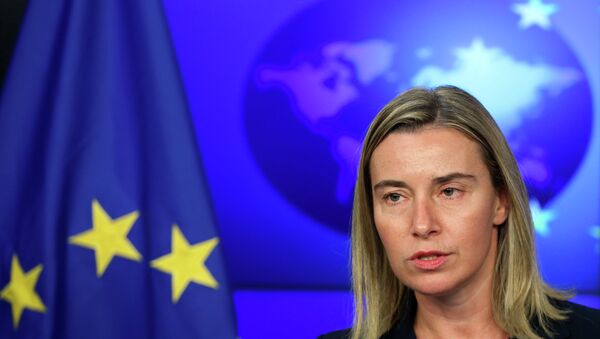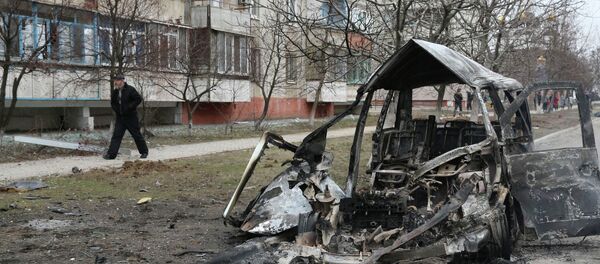“Residential areas of the city of Mariupol have been fired upon today from separatist held territory… This further escalation of the open armed conflict has tragic consequences for a population greatly suffering already for far too long. It would inevitably lead to a further grave deterioration of relations between the EU and Russia,” Mogherini said in a statement.
The EU foreign policy chief called on Russia to “use its considerable influence over separatist leaders and to stop any form of military, political or financial support” to prevent “disastrous consequences for all.”
Earlier on Saturday, Ukraine's southeastern city of Mariupol, a Kiev-controlled port city located outside of the main conflict zone in Donetsk Region, came under shelling. According to the latest estimates by local authorities, the attack claimed the lives of 30 people, including two children.
Kiev authorities blamed the Donbas militia for the shelling, while the DPR denied any involvement, stating that the attack came from Mariupol's western district of Stary Krym, where the Ukrainian Armed Forces are stationed.
The European Union, alongside the United States and a number of other allies, has repeatedly accused Russia of providing independence supporters in Ukraine’s southeast with military support. The West has introduced several rounds of sanctions against Moscow over the Ukrainian conflict.
Russia has firmly denied any involvement in Ukraine’s internal affairs and called for dialogue between the two warring parties.
In September, Kiev and eastern Ukrainian militia reached a ceasefire agreement during talks in Minsk, brokered by Russia and the Organization for Security and Co-operation in Europe (OSCE). The ceasefire has since been repeatedly violated, with both sides accusing each other of failing to comply with the agreements.
Despite the introduction of a so-called "silence regime" and seemingly improved dialogue between Kiev and Donbas militia in December, tensions have been on the rise in eastern Ukraine in recent weeks.



